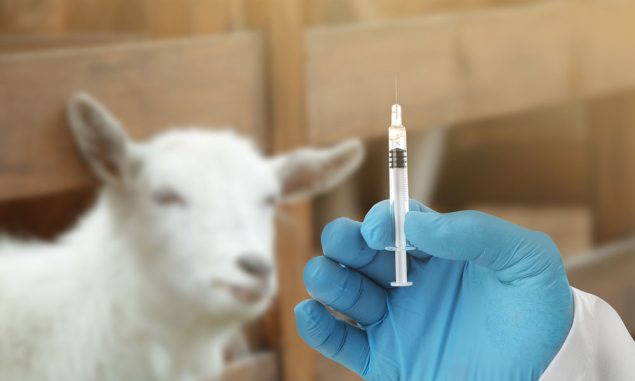The chemical class benzimidazole has broad anthelmintic properties. The particular use of benzimidazole in livestock and goats is to eliminate parasitic worms. Moreover, few veterinary benzimidazole medicines are used for humans as well. Parasitic helminths of the plants are also controlled by benzimidazole.
In the 1960s the first generation of benzimidazoles was discovered for the effective treatment of tapeworm. Another compound is known as prodrugs. They mimic benzimidazoles. Pro drugs are highly soluble in water which makes them a perfect choice over benzimidazoles. They are converted into benzimidazole once they enter the host. The reaction takes place in the liver.
The non-gastrointestinal roundworms are best treated by albendazole and mebendazole in goats. Adult liver flukes are treated with Albendazole. This article will help you to understand the benefits of benzimidazole wormer for goats and how it can be used effectively. Don’t skip the page, keep reading!
Benzimidazole Wormer For Goat Uses
Before we discuss the uses of benzimidazole wormer. It is best to understand its active ingredients. Benzimidazole wormers are mostly used for livestock, cattle, goats, and other animals. Benzimidazole wormer has the following active ingredients.
- Albendazole is widely used for horses and goats
- Febantel is a pro benzimidazole wormer and is highly effective for parasitic worms in goats
- Fenbendazole has great advantages for all kinds of livestock.
- Flubendazole is famous for the treatment of pets
- Mebendazole is highly effective for goats and is used widely.
- Netobimin is a pro benzimidazole and is effective against all kinds of parasitic species in goats and other animals.
- Oxfendazole is another important ingredient in benzimidazole wormer.
- Oxibendazole helps to eliminate the parasitic worms.
- Ricobendazole is mainly used for all the veterinary issues related to the gut.
- Thiabendazole was replaced a long time ago with a more effective version.
- Triclabendazole has been vastly used by vet doctors to treat goats.
For goats the approved three classes of benzimidazole are used widely. As goats fall under minor livestock animals. So, the research of the parasitic issues in the goats is very limited and precise. Albendazole and Fenbendazole are the most commonly used medications in goats.
When goats have the condition of parasitic worms in their gut or abdomen. The veterinary doctor will suggest the first-line treatment with benzimidazoles. The treatment is effective, highly beneficial, and cost-effective. The discomfort and the mortality rate in goat species reduce significantly.
Benzimidazole Wormer For Goat Mechanism
Benzimidazole wormer binds to tubulin. Microtubules are part of the process of benzimidazole binding. The motility is affected by the microtubules because it is a structural protein. The division of cells in the organisms is maintained by microtubules. So they play an important role in the mechanism of various life processes.
When the microtubules are blocked in the worms, the glucose uptake is restricted and the process slows down. This will deplete the reserves of glycogen. Which kick-starts the action of benzimidazole wormer. The energy management of the worms is blocked. As a result, they die and are expelled out of the goat’s body.
The mechanism of the action for all benzimidazoles is the same. It does not matter if the medication is used for animals or humans.
Benzimidazole Wormer For Goat Dose
Goats are usually administered the drench formulation. The formulation will consist of albendazole and fenbendazole. With the drenching system, the dose must be administered accurately. It is advised that the dose of benzimidazole should be placed on the base of the tongue.
When the dose is delivered in the front part of the mouth there are high chances that the goat will spill half or full medication. Which can reduce the dosage. It is advised to administer the medication at least twice a day for 1 week.
Liquid suspensions and injectables are also available that help. The dose of the medication must be administered properly according to the instructions. Otherwise, the goat will not be able to recover fully. Sometimes the oral medications may lead to gag reflex. Eating habits can also affect the absorption of the medication. Some animals eat more while others eat less.



